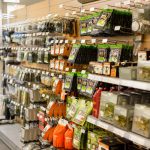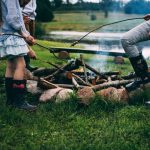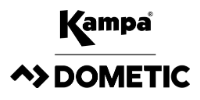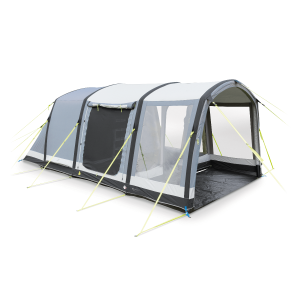We’d love to send you money-off vouchers, exclusive offers and the latest info from Attwoolls Outdoors by email. We’ll always treat your details with the utmost care and won’t share them with any third party. You can, of course, opt out of these communications at any time!Submitting your details tells us that you're OK with this and you agree to ourprivacy policyandcookie policy.

Basic Camping Checklist
If you have never been camping before, or your only tent based experiences are at a festival then you’ll benefit from our handy checklist of camping basics. You may want to add your own essentials but this list is a good foundation in which to build your own camping checklist
1. Somewhere to sleep
This might seem like the most obvious thing you will need when camping, but there are lots of options when it comes to sleeping. For the more adventurous there are tree tents, which offer an elevated sleeping experience. For hot summer nights a bivvy bag may be more suitable than a tent, and certainly for camping trips conducted on foot with hikes in between the bivvy bag option cuts down the weight and amount of equipment you need to carry. For most situations a tent is best, but make sure you use one that is suited to the place you are going and who you are with. Once you have the roof over your head sorted you need to make sure you have a sleeping bag and sleeping mat or inflatable bed. Again, going on foot means not taking lots of bulky equipment like air beds and pumps, but if you are going by car you can take this level of luxury with you.
2. Something to eat and drink
Depending on the campsite you might need to take water with you, so make sure you have enough to drink and wash with while you are there. Some campsites have shops selling all the food you will need for your stay, other wilder sites dictate that you have to bring all your food with you. Don’t overpack as there will always be a way of getting more supplies but do ensure you have enough to keep going until you reach a shop. Also take utensils and equipment for cooking (plates, cutlery and pots/pans), and don’t forget the basics: teabags/coffee, sugar, UHT milk, salt, pepper and cooking oil.
3. Something to wear
Changing weather is one of those things that any British camper will experience, so it is a good idea to have the right clothes and footwear for hot, sunny weather and humid conditions as well as the rain that will surely fall at some point. Being able to stay dry will ensure you enjoy your holiday so keep a dry set of clothes in a waterproof bag in case you get soaked through, as well as a spare set of shoes. Wellies are always handy for camping, as are any shoes that can be slipped on in the dark, within the confines of a tent.
4. Something to help you see
Even the best lit campsites have dark areas, and inside a tent it always seems darker than outside. A torch is an essential item, and make sure you take spare batteries if you are going wild because you can guarantee that the batteries will run out in the middle of the night. Campfires provide light, so take matches and a lighter to build a fire if you are allowed to do so on your site. Electric lanterns provide a good amount of light without anyone having to hold a torch.
5. Something to do
If you are camping with children take books and toys to keep them occupied. If you are camping with friends or family bring something to keep you entertained during quiet periods, such as a book or simple craft project
野外露营意味着你必须将材料for building fires and collecting wood, digging tools for a latrine, water purification methods, plenty of non-perishable food, light sources, a good sturdy tent and proper clothing, whereas camping on a site with designated pitches, washing facilities and a shop means you can take less with you and top up on food and other items when you are there. However, this basic checklist should give you a good starting point. Why not check out our shop to see the range of tents, stoves and other camping equipment available, then you can start your own personal camping essentials list.








